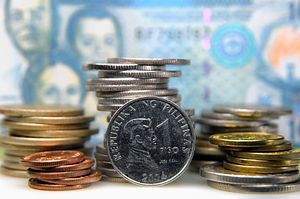Major banks are realigning their businesses in Southeast Asia, where a winding back of cross-border tariffs and regulations has led to sharp rise in regional trade ahead of the launch of the ASEAN Economic Community (AEC).
The latest, Standard Chartered, has announced that it will realign its operations, particularly in the Greater Mekong Subregion (GMS), which takes in Thailand, Myanmar, Vietnam, Cambodia and Laos, to take advantage of a trading boom.
“We are the only international bank with a network covering all five countries therefore we are well placed to support the flows of businesses in ASEAN and leverage our experience to help strengthen economies in Thailand and the GMS,” Group Chief Executive Peter Sands said this week in Thailand.
Last year cross-border trade with the 10-nation Association of Southeast Asian Nations (ASEAN) surged 26 percent to $323 billion. However, this figure is expected to grow still further once the AEC is instituted by the end of 2015 with an anticipated combined gross domestic product of $2.1 trillion.
Following that, international banks will face stiff competition from the regionals through the ASEAN Banking Integration Framework (ABIF), expected to be implemented by 2020.
Under ABIF an ASEAN-based bank will be re-classified as a local bank across the 10 ASEAN countries, as opposed to being categorized as foreign banks in a neighboring country. This will enable them to compete with an influx of major banks from China and Japan.
Indonesia, by far the biggest economy in the region, has more than 100 banks but so far it’s the Philippine banks that have been particularly active in raising capital for an aggressive expansion plan amid the integration plans.
“The objective of the ABIF is to come up with strong, well-managed banks in the ASEAN region and one of the things that would help do this is to allow greater competition and greater access to markets within the ASEAN region and even to markets outside member jurisdictions,” Philippine central bank governor Amando Tetangco said recently.
In terms of asset value Philippines banks remain small when compared with their peers in Thailand and Malaysia, and lag substantially behind banks in Singapore. Many are thrift banks that are expected to benefit from changes in foreign equity laws.
Similar policies are being adopted across the region and this is expected to lead to increased mergers and acquisitions over the short to medium term.
Sands said the five GSM countries were well positioned to benefit from a significant boost in foreign direct investment despite a slowdown in the global economy.
“All countries have problems, and even the global economy has upward and downward cycles,” he noted during an address to mark his banks 120th anniversary in Thailand.
Luke Hunt can be followed on Twitter @lukeanthonyhunt

































